New rules for pubs in Wales: What do the changes mean?
- Published
The rules for licensed venues have been turned on their head by the first minister following his announcement on Monday of sweeping restrictions to the hospitality trade. Let's take a closer look.
What are the new rules for pubs in Wales?
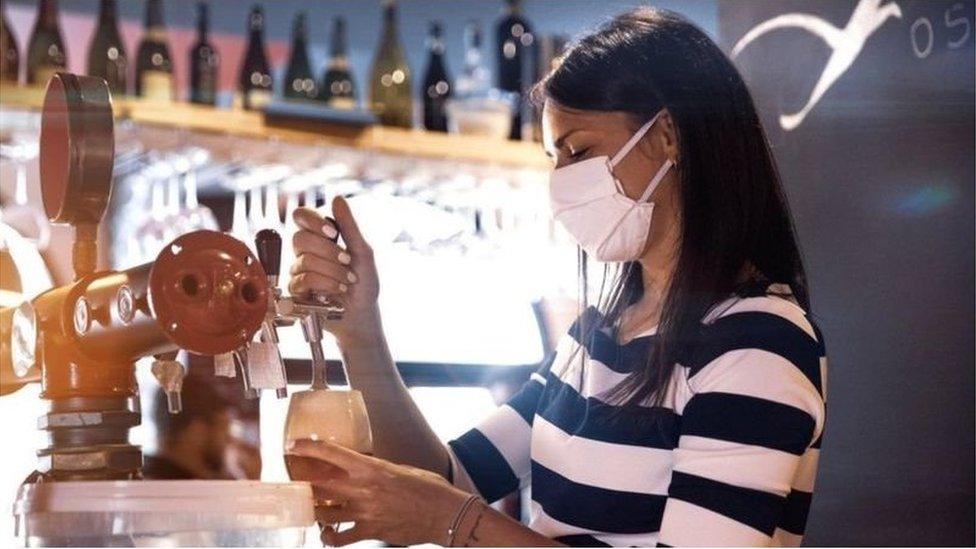
Pubs can't do this on the premises any more from Friday, but you can still get takeaways
From Friday at 18:00, licensed pubs, cafes and restaurants in Wales will have to stop serving alcohol on their premises. Those with an off-licence can sell alcoholic drinks to be taken away.
They will have to close at 18:00 every day until further notice. They can operate a takeaway service for food and drink after 18:00.
The regulations will be reviewed on 17 December.
Can I still buy alcohol in off-licences and supermarkets?
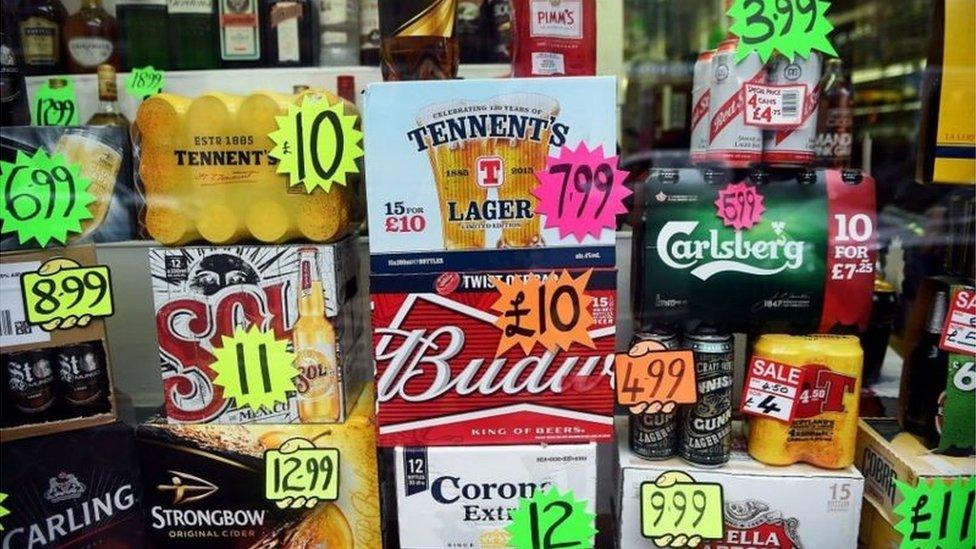
Shops and off-licences can still continue to sell alcohol until 22:00
In a word, yes. Some people have questioned whether this is fair on pubs, but as stated above, pubs which have the correct licence can provide "off-sales", ie alcohol to take away.
According to the British Beer and Pub Association, the majority of pubs tend to have an off-licence as part of their trading conditions anyway. But under the Business and Planning Act 2020, all premises have now been given temporary extensions to their licences allowing off-sales until September 2021.
It's important to be clear that alcohol sales are not banned in pubs - you just can't drink it there. This is not Prohibition Mark II.
First Minister Mark Drakeford said they had considered bringing in a 18:00 cut-off time for alcohol sales in shops but had decided people would just stock up before that time, so it would have been "an action without a consequence".
How many places and people are affected by the restrictions?
We're a land of wine (and beer), (bar-)women and song apparently, with 2,190 pubs in Wales, according to House of Commons figures from May.
This means Wales has the second-highest number of pubs per population in the UK, at 70 per 100,000. Only the south west of England has more.
The accommodation and food sector in Wales employs 106,400 people according to the latest statistics. It accounts for 3.2% of all industries and is worth £2.1bn to the Welsh economy.
Of those jobs 27,400 are in Wales' 1,200 cafes and 1,500 restaurants, according to UK Hospitality.
Beyond that, the food and drink supply chain employs 229,500 people in Wales, including in catering, retail and wholesale, agriculture and fisheries, and manufacturing and packaging.
The news is already having a big impact. Wales' largest brewer, Brains, is closing 100 of its managed pubs on Friday and putting 1,500 staff on furlough. Not much Christmas cheer or singing there.
It's bad news for a sector which was already in trouble prior to Covid striking. Despite that high per capita figure for pubs, Wales had the biggest proportionate decline in pubs in the UK, with 1% closing even as pub numbers were increasing across the UK as a whole.
What's the evidence for not selling alcohol and early closing?
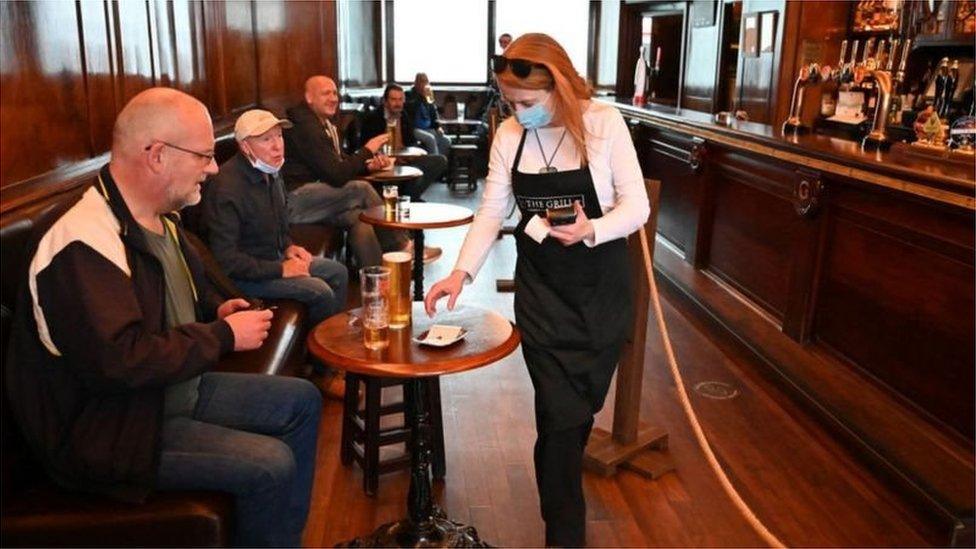
Pubs argue it is safer for people to drink in a regulated environment but evidence says alcohol "impacts on behaviour"
Good question. It's not entirely certain who has the answer to that.
In the briefing, Mr Drakeford said the evidence "was there" that the virus was spreading in hospitality venues, and that with cases rising, without changes there could be between 1,000 and 1,700 preventable deaths over the winter.
However, when asked for this evidence, the Welsh Government initially pointed back to a Scientific Advisory Group for Emergencies (Sage) report from September which said there was "moderate impact" from taking action on pubs.
This is what the advice said: "Potential reduction in Rt [reproduction number] of 0.1-0.2, though precise estimation very difficult. Environmental risk in bars, pubs etc is likely to be higher than many other indoor settings due to close proximity of people, long duration of exposure, no wearing of face coverings by customers, loud talking that can generate more aerosols.
"Some venues are poorly ventilated, especially in winter. Consumption of alcohol impacts on behaviour."
But - and it is quite a big but - this was talking about the impact if you close pubs entirely. Not the impact of stopping serving alcohol, although that is referenced, and crucially, not closing them early.
In fact the advice goes on to say: "Curfews likely to have a marginal impact. Low confidence [in the outcome]."
So is it ho, ho, hogwash?
When asked for more specifics, the Welsh Government then referred to another Sage report, external which it said had concluded that measures being taken in Scotland's level three, external and England's tier three, external coronavirus restrictions were effective.
England's measures once again involve closing hospitality venues entirely, which is like comparing apples with pears.
However, Scotland's - finally - do apply the same measures as Wales will be taking, namely venues closing at 18:00, and no alcohol being served.
However, these restrictions were only brought in on 2 November, and it is worth bearing in mind that many of the areas now in Level 3 or 4 had previously been under restrictions which had seen pubs closed entirely.
A Welsh Government spokesman said: "We know that as the consumption of alcohol increases, social distancing and the perception of risk decreases.
"Wherever people mix, there's a risk of coronavirus being passed on."
- Published1 December 2020
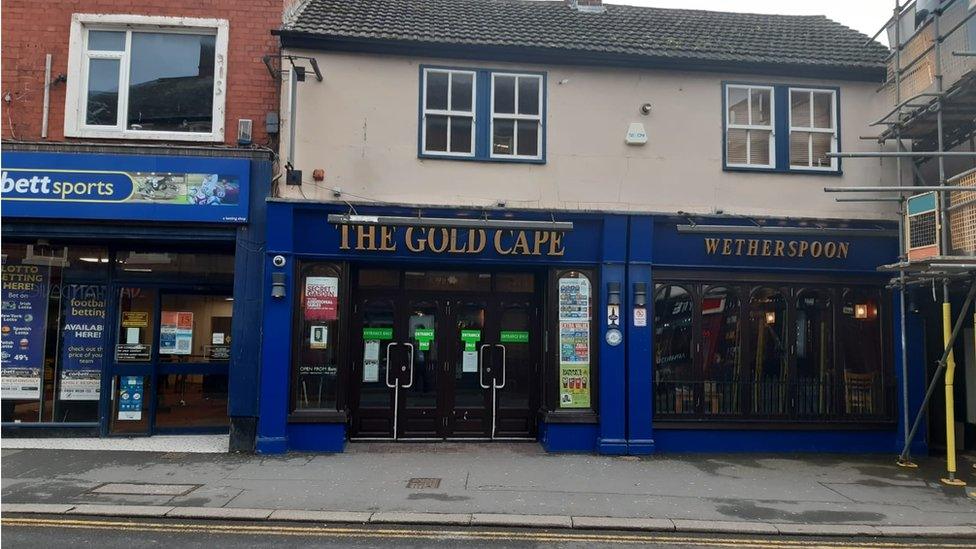
- Published1 December 2020
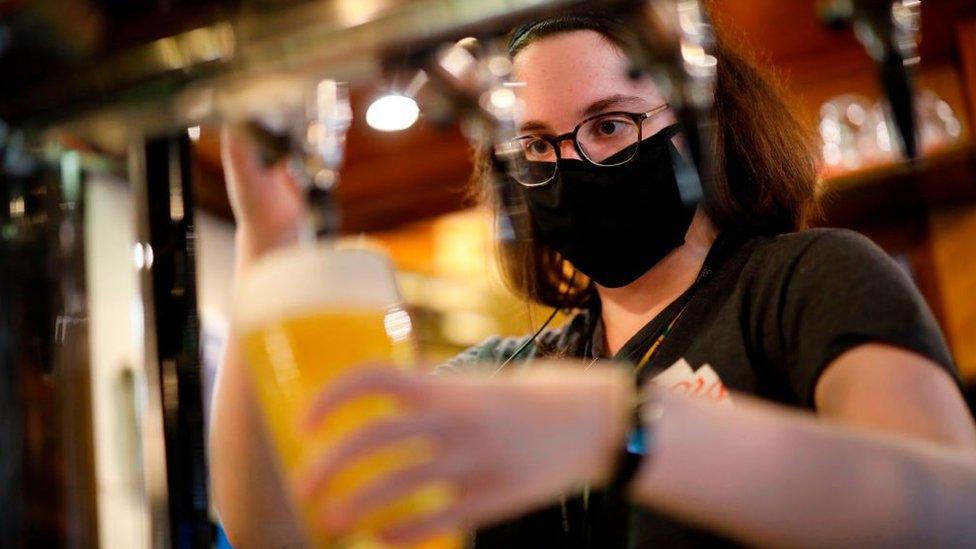
- Published30 November 2020
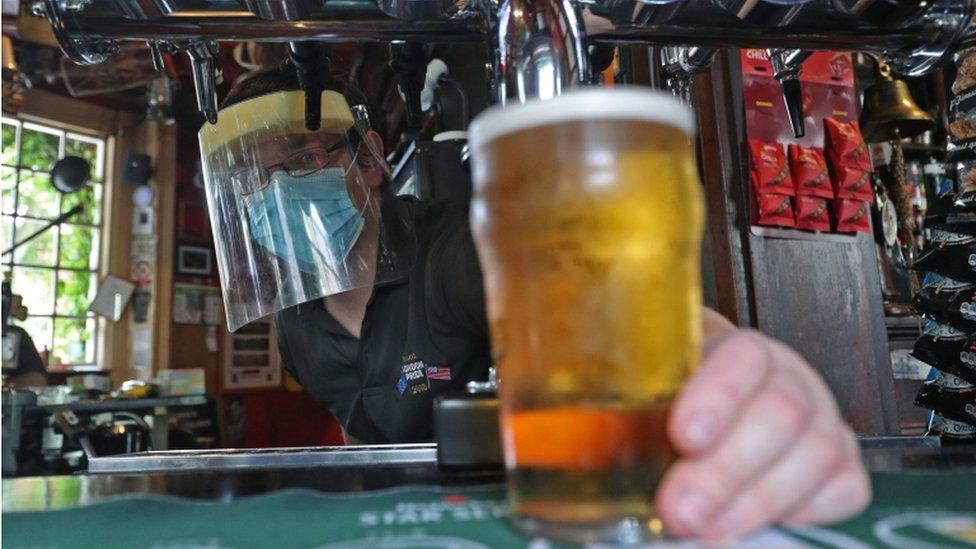
- Published28 May 2024
